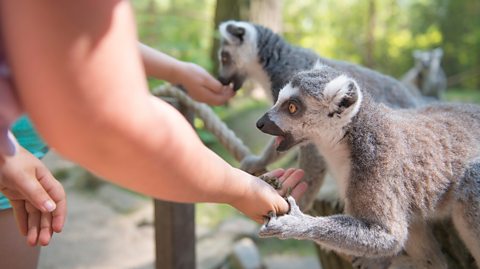TheyÔÇÖre experts in the game of fetch, skilled diggers, and qualified to put a smile on your face ÔÇô sometimes literally.
As long as dogs have been our companions, theyÔÇÖve also been our colleagues and helpers. There is evidence that dogs were domesticated long before the development of written language and made for great natural alarms and hunting companions.
But what does the modern working dog do? Here are four awesome paw-fessions suited for the fast and the furriest.
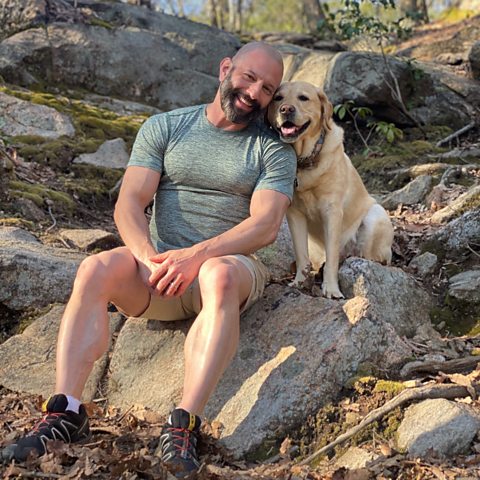 Image source, Brian Benson
Image source, Brian BensonMindful pups: Therapy dogs
Therapy dogs, also known as comfort dogs, are different to service dogs who assist their handlers with specific tasks. Therapy is a broad field for dogs just like it is for humans, but there are three main types:
- Animal-assisted physical therapy: These dogs assist physical and occupational therapists and their patients by helping towards recovery goals. This can include regaining pet-care skills for people who have pets at home and are adjusting to new motor-skill or mobility challenges.
- Facility therapy dogs: These dogs work in specialist care facilities such as hospices and care homes for people with AlzheimerÔÇÖs disease to provide emotional support. They have even been shown to reduce pain in patients recovering from accidents, as interacting with them boosts oxytocin.
- Visitation dogs: These dogs provide emotional support and comfort as part of an animal-assisted therapy plan. This can be as simple as cheering someone up with a bit of play and affection. They might even come to schools, courtrooms and universities to help assist people when theyÔÇÖre feeling stressed or anxious.
Not all dogs are suited to be therapists: they need lots of special training and a dog-ploma to prove that they have the temperament to work with people every day.
Thanks to social media, therapy dogs are able to extend their services outside of the facilities they work in. You might even recognise Magnus the therapy dog from your TikTok feed, as Covid-19 put all his in-person pet visits on hold. Now he brings smiles to millions of viewers online.
 Image source, Brian Benson
Image source, Brian Benson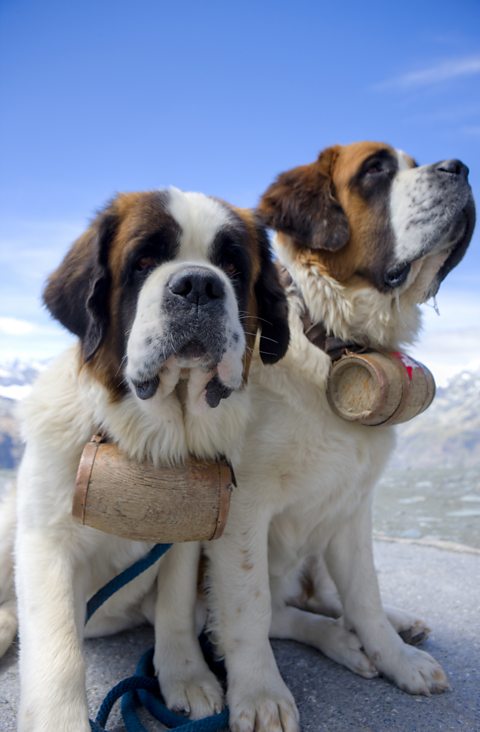
Olympic sniffers: search-and-rescue dogs
Dogs have assisted search-and-rescue efforts for thousands of years.
You may recognise the image of a St. Bernard with a keg under its chin and a red cross ÔÇô these are based on Swiss monastery rescue dogs, who would dig people out of the snow and either warm them up until help could get there or carry them to safety (the keg around the neck is a myth, however, popularised by paintings and cartoons).
Nowadays search dogs are more likely to be breeds which are excellent sniffers with high speed and agility, such as Border Collies, German Shepherds and Bloodhounds, as they can track and trail a personÔÇÖs scent to up to 500 metres.
Search-and-rescue dogs are likely to accompany police or emergency responders in disaster situations to help find missing people.

On high alert: Seizure response dogs
You may have heard of detection dogs sniffing out evidence in crime or disaster scenes, but there is another important skill which dogs have the upper paw on.
Seizure response dogs are trained to support a person with epilepsy, migraine or a seizure disorder when theyÔÇÖre having an episode of their condition. They do so in a variety of ways, such as putting their body between the seizing individual and the floor, or lying with them to prevent injury. In a facility, they might also ring an alarm or fetch someone to help.
Seizures can be very emotionally traumatic as well as physically traumatic, so having a furry friend on hand might help provide comfort after an episode.
In some cases, specially trained dogs may be able to alert their handler that they might be about to have a seizure ÔÇô these are known as seizure alert dogs. Max, a German Shepherd seizure dog, went viral when his owner Tina shared a TikTok of him alerting her to a seizure by jumping up on the counter while she was washing dishes, and cushioning her as she got down to the floor before collapsing.
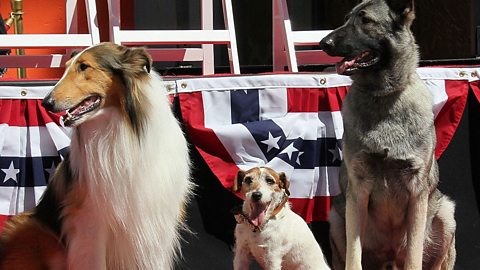
On the walk of fame: Dog actors
If your dog is particularly good at tricks, they might have it in them to make it on the big screen. From Toto to Beethoven, many canine companions have been on adventures with iconic characters, and even have their own list of profiles on IMDB. Acting dogs need to be particularly patient and consistent in performing repetitive commands. Nowadays, dogs have casting calls and auditions like any other actors, but can be specially trained by talent organisations too.
One famous rags-to-riches dog star in history is Rin Tin Tin, who even inspired his own TV show. Rin Tin Tin was rescued as a puppy by soldier Lee Duncan from a WWI battlefield, and then went on to star in 27 silent films in the early 1900s. Although he passed away a film legend in 1932, several waggy-tailed successors went on to play the character Rin Tin Tin right up until 2012.
If you donÔÇÖt fancy dealing with the on-set drama as their co-star, training dogs as actors is also a valuable behind-the-scenes career!


Cats with careers: Four enviable purr-fessions
Meet cats who have made a name for themselves in the world of work.
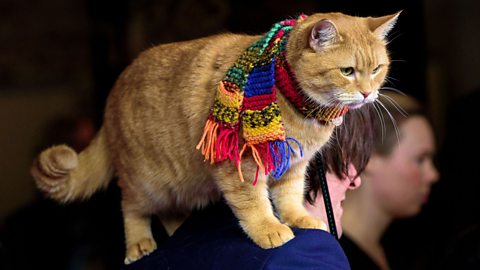
Kirstie: veterinary nurse
Kirstie's a veterinary nurse in London.
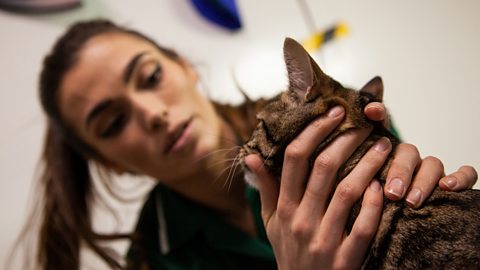
Chris: interpretation officer and zookeeper
Chris does outreach at schools and introduces visitors to lemurs and wolves at a wildlife park.
